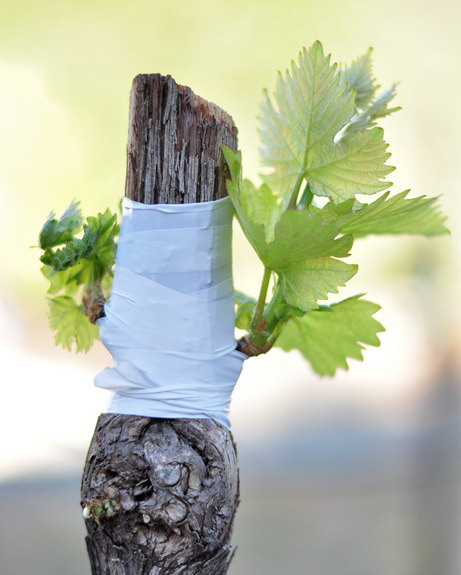Show Notes Episode 7 – On Grafting Grape Vines and Special Guest Ray Hollenbach
Click to listen now:
Podcast: Play in new window | Download (Duration: 21:54 — 30.1MB) | Embed
Subscribe to Spark My Muse Apple Podcasts | Spotify | Email | TuneIn | RSS | Subscribe to Spark My Muse
This episode was brought to you by…
Life As Prayer: Revive Spirituality Inspired by Ancient Piety
Learn about 16th century Brother Lawrence and how his understanding of God’s presence continues to affect lives today.
It’s a fact: the plants that produce wine grapes don’t come from seeds. You can’t “sow grapes”. More on that soon.
And later, Student of Jesus blogger and disciple-maker Ray Hollenbach and I talk about the fruit of the spirit (debunking the most common myth about it), and a little bit about the Vineyard church he is a part of, and what his “Deeper” seminars and workshops are all about.

Wine segment:
Wine grape plants don’t come from seeds, so how are vineyards created?
There are two main ways commercial growers get their fields ready for a grape harvest:
The first way is to plant seedlings taken from healthy and mature grape vines. This means that a harvest of good grapes for wine is 4-5 years away. Booo.
The second way is to use an older and mature vineyard and graft in (attach) new plants into the vine.
They prune down the top of the plant. They chop it nearly down to the ground, and expose some of the top to the vine stem. Then, they graft living plants into it. The grafting process means that whole new varieties of grapes in just one year, using the original root system to obtain all the necessary nutrients. Grafted in plants can also inoculate older vines against certain diseases with disease resistant pants (usually hybrid seedlings) that make the whole system healthier.

It can cost $150, per plant, to graft in new vines and it’s done in a precise sort of way with notching the root stem, adding in plants and sealing them together so they merge.

Grafting plants has been done for thousands of years. In the bible, the church is compared, by the apostle Paul, to a wild olive plant grafted into an olive tree. The first audience hearing Paul’s words would understand this word picture: the church is an introduction of something very new. Something able to impart a whole new vitality into the current understanding of religion and closeness with God.


Sparking your Muse
An interview with Ray Hollenbach
Ray Hollenbach writes at Students of Jesus.com
He does the Deeper Seminar nationwide.
View his YouTube Videos on his new channel.
Interview Notes –
Minute: 4:30
Fruit of the Spirit
Galatians 5:22-23 New Living Translation (NLT)
22 But the Holy Spirit produces this kind of fruit in our lives: love, joy, peace, patience, kindness, goodness, faithfulness, 23 gentleness, and self-control. There is no law against these things!
Holy Bible. New Living Translation copyright© 1996, 2004, 2007, 2013 by Tyndale House Foundation. Used by permission of Tyndale House Publishers Inc., Carol Stream, Illinois 60188. All rights reserved.
4:48
“Fruit of the Spirit is not a gift that we get; but come as a result or outcome of natural (spiritual) health”. -Ray Hollenbach
6:30 – How parenting matures us in the same way that “making disciples” matures us.
7:30 – The Impossible Mentor
8:30 –
“The goal of the Christian Life is NOT to get to heaven.”
9:47
• John Wimber
10:06 –
12:20
Grape Vines
13:50
Grafting
14:40
“Jesus taught practically and transpositionally.”
(i.e. interacting with the transcendent in a practical way)
15:30
I hope you enjoyed the podcast!
I’d like to hear from you. Please, take this short 30-second survey.







